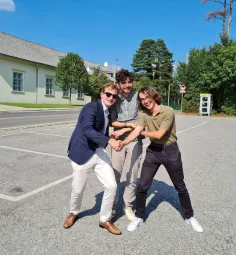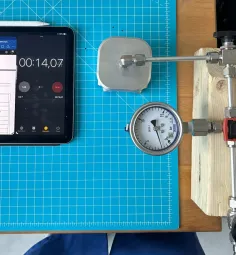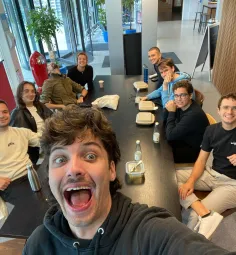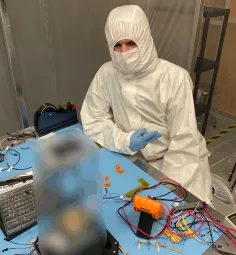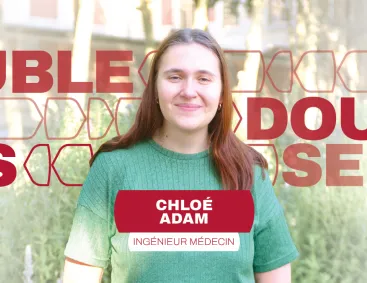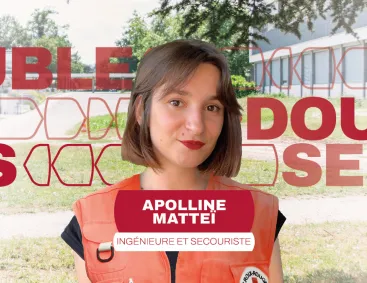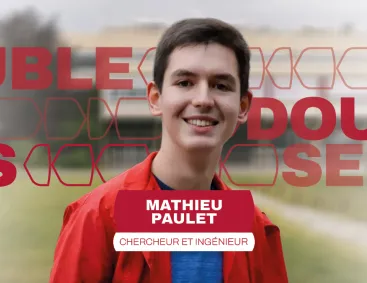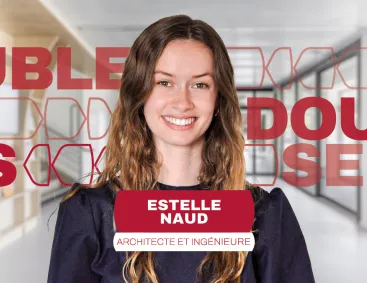A journey guided by aeronautics
What motivated you to become an engineer?
Ever since I was a little boy, my dream has been to build rockets! Naturally that steered me towards engineering, even though I wasn't particularly enamored of the pre-prep course. I didn't understand why you had to "do math to learn how to make things" instead of just "make to learn".
Centrale Lyon offers a generalist course, weren't you afraid of returning to this very academic pattern?
That's true, but ultimately what also impressed me at Centrale was the associative life. By joining EPSA, the school's automobile racing team, I was able to lead a whole team and design an electric car. I also made a lot of progress at the FabLab, working on personal projects. These experiences have shaped me as much as the courses.
How did your dream of "building rockets" invite itself into your career path?
I first did internships in aeronautics at Safran in particular, and I had an incredible experience during my gap year in New Zealand, at Rocket Lab - a start-up that has now become a major player in the space industry. There I worked on a Mars exploration mission for NASA. The atmosphere left a lasting impression on me: a team constantly practicing, quick decisions, an intense pace. It was there that I discovered a way of working that really suited me.
From engineering to entrepreneurship
Was working in a successful start-up what led you to entrepreneurship?
Not quite, but after Rocket Lab, I realized that I liked fast-moving environments, where every idea could become a prototype. But in reality, it was a series of encounters that led me to entrepreneurship. Just after this break, I took part in the International Space University, an exchange program dedicated to the space industry with people of all ages and professions who share the same passion for space. It was there that I met an Austrian participant who was part of Team Tumbleweed, an international association working on a volunteer Martian exploration project. It was from this association that the start-up project was born!
How do you go from an associative project to a start-up?
When I joined this voluntary association, the team consisted of around fifty people, students and engineers from all over the world, who were very committed. But little by little, many were finishing their studies or lacking the time to get involved... we said to ourselves: either we stop, or we capitalize on what we've built. As for me, I was finishing my master's thesis at HyPrSpace and the managers encouraged me to try the entrepreneurial adventure and that gave me the safety net I needed. With Julian Rothenbuchner, the association's founder, and Leonhard Goliasch, another associative member, we decided to develop a business that met a need: enabling laboratories and companies to conduct experiments in weightlessness on board small satellites in an accessible way. The idea: to make access to space as easy as sending a postal item, and so Tumbleweed Microgravity was born!
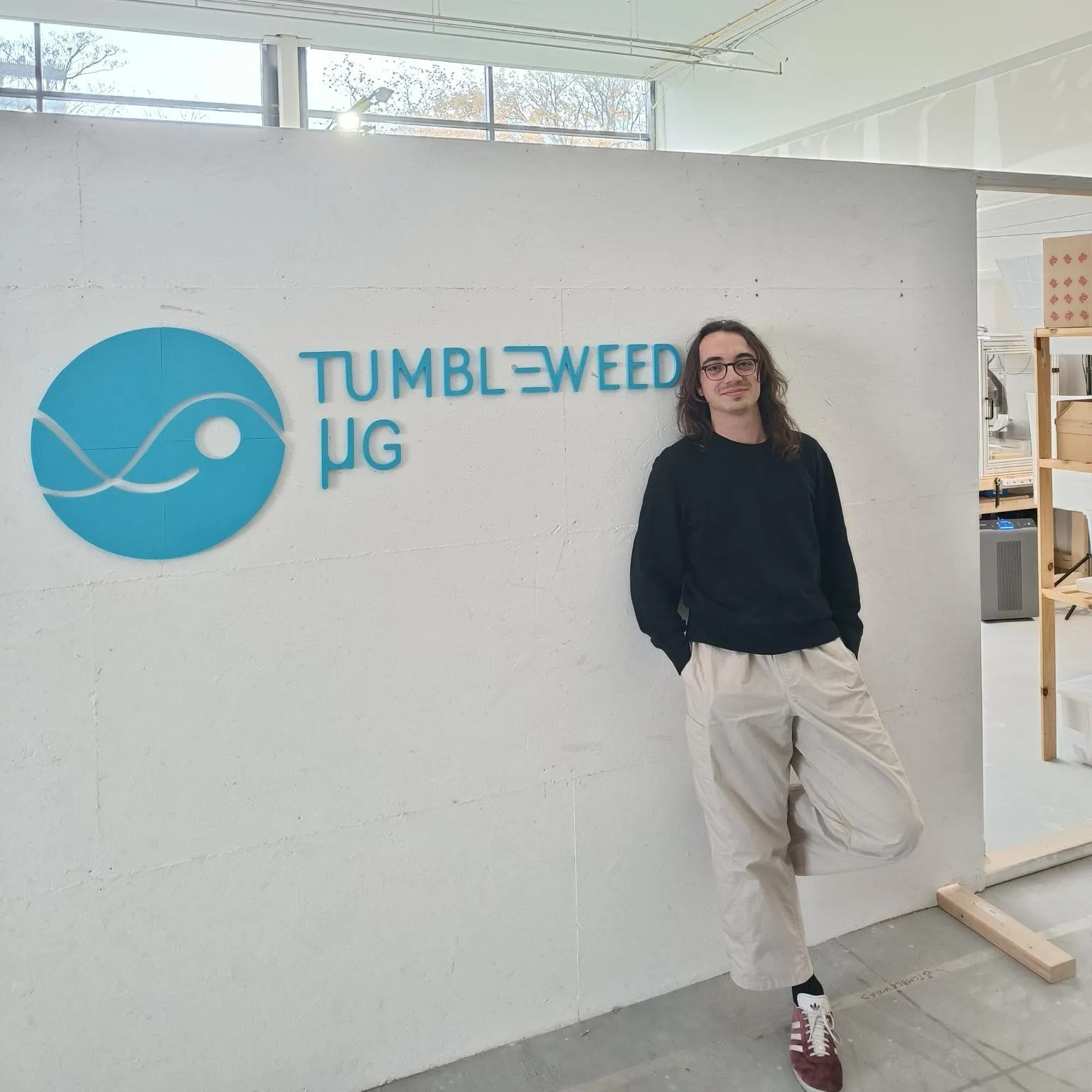
Making weightless experiences accessible
Concretely, what do these experiments involve?
We design small modules embedded in an autonomous satellite, which we send into orbit. Each module contains a miniature scientific experiment: this can range from a study of materials physics with, for example, the study of the sublimation and then condensation of iodine crystals, to the production of pharmaceutical molecules in zero gravity. The idea is to enable researchers or companies to test how certain physical or chemical phenomena behave when gravity is no longer present. The interest is twofold: on the one hand, we gain access to results impossible to obtain on Earth, and on the other, we radically simplify access to microgravity.
Why propose an autonomous satellite and not go through a station?
Because it changes everything. Working aboard the International Space Station involves many constraints: astronaut safety, cumbersome administrative procedures, very long lead times and restrictions on the materials used. With a fully autonomous satellite, we eliminate these obstacles. Everything on board is automated and secure: experiments take place without human intervention, in an environment that we control from A to Z. The result: researchers can design their protocols freely, timescales are considerably reduced and costs much lower.
A quick start and a second launch planned
What's the status of the project today?
It got off to an extremely strong start, we received a lot of support and in one year we went from three founders to fourteen people, split between Austria and the Netherlands. Our first satellite is being assembled and should be ready in the spring, for alaunch scheduled for sometime in 2026. It will carry four experiments for a variety of customers: start-ups, research institutes, public laboratories.
What are your medium-term objectives?
We're preparing a second fundraising round to finance the second launch and strengthen the team. We have already sold the first place on the second flight, scheduled for late 2027, which will be on a much larger scale. We are taking part in several competitions and challenges to gain visibility. In fact, we've just won first prize in the Start'Up Challenge des Écoles Centrale.
What advice would you give to a student wanting to set up their own business?
First and foremost, surround yourself well. You can't know everything, or do everything alone. In our team, we have three complementary profiles: engineering, business and management. That's what makes our balance. And above all, you have to keep in mind that a start-up is a gamble: 99.9% fail.
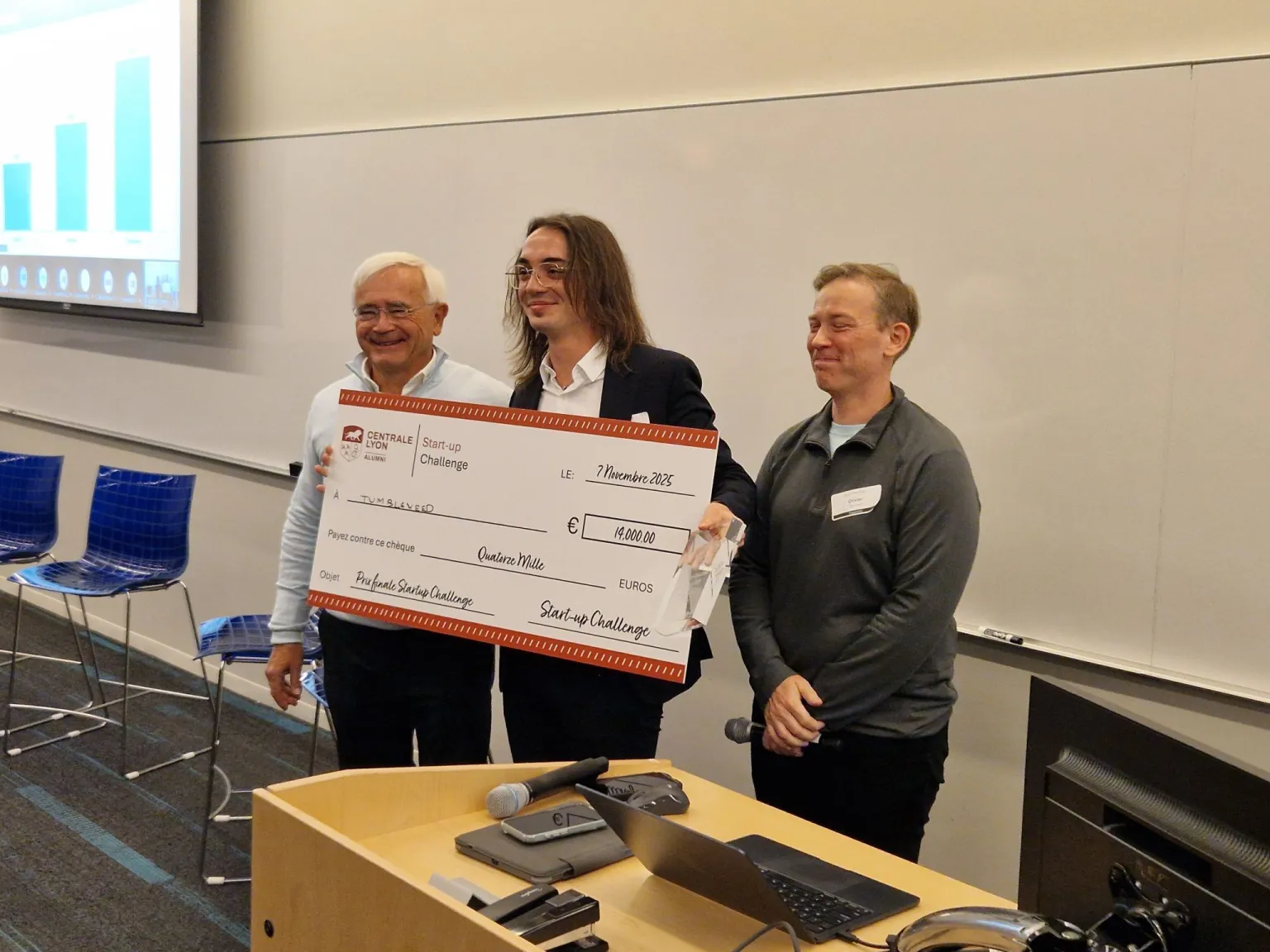
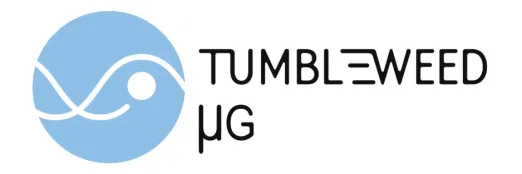
Tumbleweed Microgravity: portrait express
- Objective: to democratize access to microgravity for research and innovation
- Creation: 2024
- Team: 14 people
- Headquarters: Netherlands
- First launch planned: 2026

